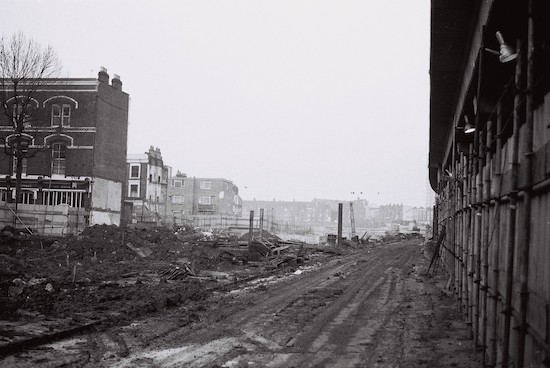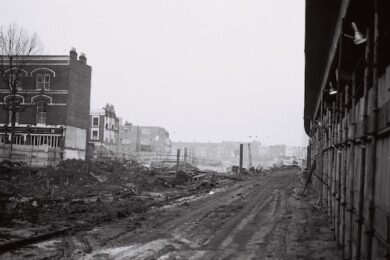All photos by Jon Savage
There’s a contingent of people who came to a whole variety of twentieth century phenomena – from Pere Ubu to the Lettrists, from the history of Britain in the 1970s to the psychological damage of the Second World War, from the Woodcraft Folk to Siouxsie and the Banshees, from Keith Hudson to Doris Lessing – via the books of Jon Savage. Speaking for myself, when asked to choose a ‘book that changed my life’ it could only be England’s Dreaming, a kaleidoscopic cultural history that still informs my thinking even as I find myself less and less able to ever imagine wanting to listen to the first Clash album.
Jonathan Sage was a Cambridge graduate and trainee solicitor when punk happened, and became Jon Savage in his collage zine London’s Outrage. A twenty-year career in the mass media followed, working for Sounds, The Face, The Observer, and Granada TV, before he became sick of the London media world and moved to rural Wales, concentrating on writing Teenage, the compendious prehistory of youth culture which he had been working on since the 1980s, and was finally published in 2007. Today he works on books – most recently the Joy Division oral history This Searing Light, the Sun and Everything Else – compiles an archive, and puts out a huge quantity of CD compilations, ranging from mixes of Californian punk and New York electro for Domino, histories of electronic music and gay pop music for Caroline True and Diskont, and most recently, a series of year-by-year pop histories running from 1965 to 1976 for Ace.
Savage usually publishes a book every ten years or so, meaning each one is an event of sorts; but this interview comes on the occasion of three of Savage’s books – England’s Dreaming, Teenage, and 1966 – being republished by Faber, with new introductions by Jeremy Deller, Scott King, David Mitchell, and Savage himself. We talked about these three, and their relation to Brexit, Blair, and Boris Johnson, over Skype, with the interviewer in South London and the interviewee in North Wales.
Don’t Mention The War: England’s Dreaming
One of the strengths of your historical books is a refusal of hindsight – there’s never a ‘and we all know where that ended up’ moment. Do you have to deliberately force yourself to avoid taking the (often depressing!) later careers of these 60s and 70s figures into account?
Yes, very much a deliberate technique, which was achieved by thoroughly immersing myself in contemporary documents. These give a sense of the way people used language then, what words and concepts they were involved with, and how they felt then – rather than how they might feel about then now, seen with hindsight. I really dislike the apparent inevitability of ‘How Punk/The Sixties Won’ etc. that you see on middlebrow TV and read in middlebrow books – the smugness of the victor.
It didn’t feel like that at the time, I can tell you. It felt provisional, sometimes desperate, with more at stake than a media career. But then there’s a lot of money and ideology riding on the denaturing and defanging of pop and youth culture these days. Obviously, this process is assisted by the rightwards shift of various once-key players, which tends to work retrospectively. Once they’ve spunked all this Brexity racist stuff, you just think: were they always like that? Not always, but the suspicion remains.
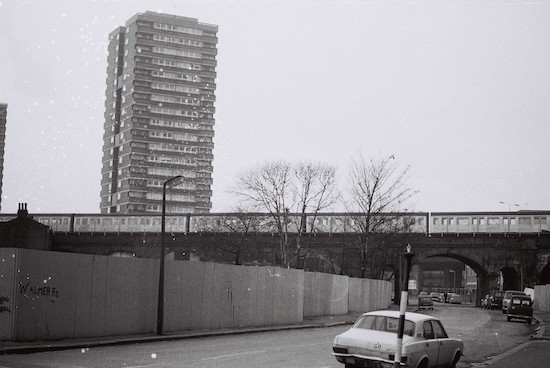
England’s Dreaming gives this incredibly vivid account of a country having a collective nervous breakdown. You can also see it in your photos of London, some of which appear in England’s Dreaming, and were published recently as Uninhabited London, a Rough Trade Books pamphlet. They depict this London of enormous dereliction and apparently infinite space, both incredibly grim and incredibly utopian to a contemporary eye. What do you make of the more revisionist accounts of that era by the likes of Andy Beckett or David Edgerton, which argue that a lot of that atmosphere of crisis was artificial and manufactured, and that Britain in the mid-70s was actually at a peak of equality, quality of life, and industrial innovation.
Those pictures are mostly Westbourne Park and Notting Dale, and Grenfell is in one of them, which I realised recently with a chill. I was in a fucking mood, I can tell you. I mean, I didn’t go and shoot Sloane Square or Sloane Street. So I was in a mood and I was picking up on something, and I wanted a backdrop for my second fanzine, and I wanted something that expressed what I felt the musicians were saying, where they were coming from – in particular The Clash, who I really liked in the early days before they became a boys gang.
The other revisionist history is obviously the dreadful Dominic Sandbrook. I noticed that in his 70s book he mentioned me all over the place and I thought, well, do your own fucking research. It certainly didn’t feel like it was a ‘peak of equality and quality of life’, it felt fucking crap. It’s hard for people to remember now, but those pictures were reflecting a reality. The whole area around Elgin Avenue was just a massive squat and derelict housing. That’s where the noise came from. Manchester was like a bomb site. It was terrible. It was like the nuclear bomb, and people’s feelings about those environments helped to create this. A feeling really of desolation, of something coming.
I suppose implicit in what I’m asking is the contrast between what was happening in inner London and in inner Manchester, both of which were shrinking rapidly in the 70s. People couldn’t wait to get out of them. And obviously similar things are happening in the US. But then you have all of those pictures that someone like Dominic Sandbrook or a Tory of his ilk would point to, of people waving their little flags outside their suburban houses during the Silver Jubilee and having a wonderful time.
Well, I was on the fucking boat trip with the Sex Pistols on the Jubilee. Thank you very much. It goes back to feelings – the strong, very strong feelings I felt about the Jubilee, like how I felt about the Falklands, like I felt about Brexit. I was incredibly alienated from the country that I was living in and very, very angry. So obviously, we’re on completely different sides of the fence. Dominic Sandbrook would say that, but it depends what you want, what you regard history as being for. Sandbrook is an extreme right wing apologist. I have nothing but contempt for him. In a way 1966 was partly written as a counter to his smug history of the 60s. I mean, it’s just fucking ridiculous.
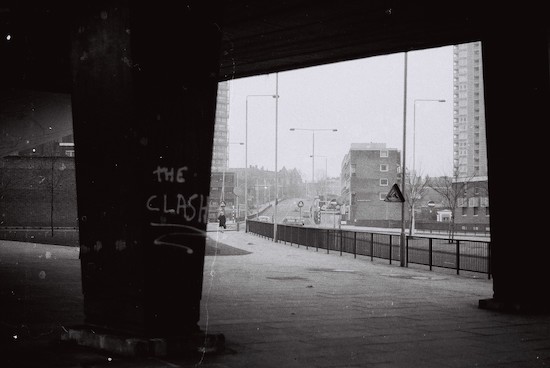
The Jubilee in 1977 just seemed like ‘oh we’re all going back, have a nice cup of tea. Mustn’t grumble, tug your forelock’. Fuck off. And I have to say this about the Sex Pistols. Whatever Johnny Rotten has become – and you can see what he’s become in his face, like you can in all of them – they were really great, and they were the only protest about this state of affairs, which was an ideological and perceptual division between people who saw England as it was, i.e., the punks, the people involved in punk rock which was still quite new, and the vast mass of people and the organised media who were saying, this is all wonderful, we won the war, this is amazing. And, you know, the index of the Sex Pistols success as an opposition was the fact that ‘God Save the Queen’ was banned right across the board.
This image of all these people waving their flags and going, we won the war makes it seem like the Jubilee is the first of one of several attempts to kind of refight the war, which obviously comes again as a massive wave with Brexit. Of course, it’s now people who are actually born either at the end of the war or after the war.
Well, I have very strong opinions on this. I first noticed this kind of golden generation envy in people like Tony Parsons in the mid-90s and I just thought it was sub-moronic, because each generation has its own task in its own time – and Parsons and I were born the same year. I regarded our generation’s task as to actually start unblocking some of the emotional damage that had happened in the Second World War, which was a huge event, and it marked you.
You know, I was a post-war baby boomer, we were very much marked by the war in the aftermath of it, and I thought certainly what I was doing was part of getting through that, getting past that, not harking back to it. The problem is that you had a vast array of popular culture during that period to explain it to some extent. In the late 50s and 60s, you had endless war films. And in fact, there’d be a very, very good article to do about the trajectory of those films from kind of rah rah triumphalism in the mid 60s onwards to really doomy, apocalyptic treatments of the subject. And then you had what we called ‘trash mags’, which were little small magazines, which were published by Fleetway Publications, which were the kind of ‘battle picture library’, or ‘air-raid picture library’. These were really, really popular, and they were schoolyard currency.
So that kind of mythos very much persisted. And in fact the war hangs really heavy over this country, because it prevented the reconstruction that was necessary, after the war, which Germany had to do, and hence the fact that Germany in many ways is is the more up-to-date, progressive country than England is, because it had to start again. Whereas here the victory in the war was regarded as kind of carte blanche to keep on going the way we had been, to some extent. I regard Brexit as a kind of national nervous breakdown, and I regard it as a lot of chickens coming home to roost in a very raw and unpalatable form, if that’s not mixing a metaphor.
I’ve been thinking a lot about my father recently because it’s father’s day. I’ve been reading a lot of Irish history, because my father was born in Ireland in 1918 and the family decamped to New Zealand. My paternal grandfather took the family to New Zealand in early 1920, and reading Irish history, the Easter Rising, the War of Independence, Civil War, partition. You just think, bloody hell. And so it’s very, very interesting to think what my father went through, really. I’ve been thinking a lot about that. It’s inevitable because there’s a gap there, which is that a lot of the people who I talk to about this, like Jah Wobble, whose father was in the war, their fathers never talked about it. So there’s a gap, this huge experience of six years of their lives. Never talked about it. So what the fuck went on? So there is the gap there that needs filling, and unfortunately, it’s being filled by nostalgia for something that never occurred.
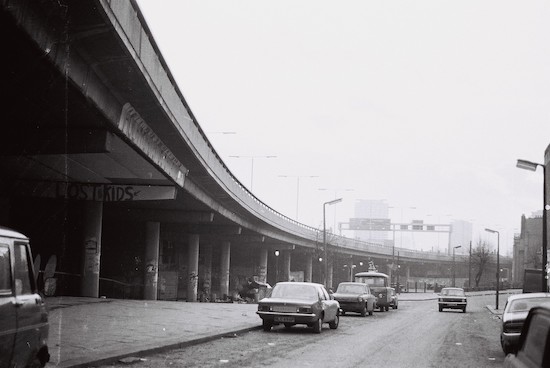
Generation Games: Teenage and 1966
Teenage roots youth culture and the birth of the teenager not in the post-war era but in the late Victorians and in the early twentieth century. One thing that comes out of it is how a lot of these people doing very pioneering lifestyle experiments were aristos, and also how much ‘youth’ was initially embraced by the far right. How much do you think this was mixed up with class – that in the early twentieth century, being a ‘teenager’ was something connected with having a degree of comfort and leisure, while for the majority working in factories and farms from an early age, being a ‘teenager’ wasn’t really an option until after 1945?
I thought about this a lot when I was doing the book. A lot of the activities that we would now regard as part of youth culture were only available to aristos or certainly the upper middle class. I think what happens is that America wins the war in ‘45 on a ticket of an implied – or actually explicit – ideology of democratic consumerism. So this initiates an age of mass culture, and that’s what I found stimulating about pop culture. It was a mass culture and it wasn’t just for the elites.
I remember when I left Cambridge, I’d been reading a lot on the 20s and 30s and I thought, well, that’s very nice, but I’ve got to get involved with what’s going on now. What’s going on now? Well, it’s not fucking Martin Amis or any of that lot. It’s not poetry. It’s pop music. It was Patti Smith and then the Ramones. They taught me what I needed to know in order to orient myself in the world outside.
But going back to that point, yeah, I think a lot of it is about class. I don’t labour the point, but you look at the neo-pagans, well it’s bloody Rupert Brooke and all that lot, who have got the time and money to indulge in these postures. But actually, some of those postures are rehearsing something that’s going to occur later on in the century.
You can see that in something like the Woodcraft Folk. They recur in a weird way with things like Aldermaston and CND.
One of the things I would say about Teenage now is that what I learned is that youth culture is not automatically progressive, liberal, consumerist, etc. The kind of youth culture that we’ve grown up with which has, in tandem with various political phases, actually created a lot more freedom for people. Certainly as a gay man, I feel this very, very strongly. Obviously, there’s a huge weight of agitation and campaigning, but also a lot of the freedoms that LGBTQ people have have gained in the last fifty years have arisen out of pop culture creating a sympathetic arena.

1966 has a lot about the very straight culture of the era – records that were huge hits like Jim Reeves ‘Distant Drums’ or ‘The Ballad of the Green Berets’.
When I was doing the book, I was trying to shed my preconceptions. So I listened to ‘Distant Drums’ and ‘Green Green Grass of Home’ – records I’d hated at the time – on repeat while I was writing about them. I can understand now why people bought them. They are well-made records. I get it even though I still don’t like them. But ‘The Ballad of the Green Berets’ is totally irredeemable. It is complete shit and it was the biggest selling record in America in 1966. So fuck ‘Paint it Black’, fuck even ‘These Boots are Made For Walkin’; it’s ‘The Ballad of the Green Berets’.
I think that idea of the generation gap – it’s very interesting, and not enough has been written about this really. How did The Beatles manage to pull everything together? Because that’s what they did. They managed to create this illusion of a unified, forward-moving popular culture. Obviously, they didn’t do it alone, but they were the central agents. And obviously, factoring into that, you have the Animals, the Kinks, Dylan, and the Byrds, Motown really coming on stream. And by the end of 1965, southern soul really started to come on stream. So you have this idea that things are moving forward, but it’s all contained within the charts and the charts are the issue, and that’s the medium. So in a way, you see, it’s a bit like punk rock in a very, very different way.
If you create a chicane where everything narrows, where everything is passed through, it’s actually a very creative moment because everything rubs up against each other. Everybody hears everything else. You’d turn on Top of the Pops and you’d sit through three or four fucking dreadful records and then you’d get the Yardbirds. The people that wanted Ken Dodd would have to sit through ‘My Generation’ or ‘Still I’m Sad’. And so you had this very understandable arena that helped create the idea of a unified pop culture and therefore a unified generation. And obviously that was completely unsustainable and was beginning to fall apart by 1966. You had a younger generation of groups like Dave Dee Dozy Mick and Titch – who I liked – and the Troggs, who I also rather liked.
What I also wanted to do with the book was to shatter the myth that 60s pop culture was just one hundred people in London and therefore didn’t really mean anything, which is the Dominic Sandbrook line. Of course he’s fucking wrong, because you have very efficient distribution of ideas and images and sounds through the mass media. You have Top of the Pops every week, which is probably watched by a quarter of the population. You also have an incredibly fertile youth media sector, which probably in total sells over a million copies every week. And this is all disseminated throughout the country.
Obviously, Terry and Julie in Kettering aren’t necessarily buying the new Yardbirds single, but what the fuck, what are you writing about? What’s your view of history? What’s your view? In the end? It becomes: what’s your view of human life? Are you interested in the ordinary or the extraordinary? Obviously there’s a dialectic between these two, but I’m interested in the extraordinary. I always have been. I’m interested in people who are trying to change things because it’s only when people try to change things that things change, for fuck’s sake.
I read 1966 for the first time this year – which I enjoyed a lot more than I was expecting to – but I was interested in the difference between the ‘generation gap’ of the time and that of the present day. Now there’s this enormous political-economic generation gap where the young, who mostly aren’t able to access the property wealth at the heart of the US-UK economy, overwhelmingly supported ageing boomer leftists, people from ‘the good 60s’, like the Civil Rights marcher Bernie Sanders and Jeremy Corbyn, whose favourite song is Sam Cooke’s ‘A Change is Gonna Come’, but who were then smashed to pieces by the overwhelming boomer support for Boris Johnson and Joe Biden.
I have noticed that a lot of my friends, or people slightly younger than me who have adolescent children, tend to have got on with them much better than we did with our parents. The generation gap in the 60s and 70s was totally fucking brutal.
Going back to one of your earlier questions, I do go back to London quite a lot because my mother still lives there, and we had the most terrible rows back in the day when I was a kid, but now get on very well. I’m very happy. And I got along very well with my father before he died. I think it’s very important to have those resolutions. But, you know, I was really alienated from my parents when I was in my teens. They didn’t get it, at all. I have noticed that changing, because of a different attitude towards parenting, and that’s positive.
But you know, I remember when Blair went to war in Iraq, I was furious, because he’s almost born the same year as me. And I thought: ‘you say you like Free? Did you not ever listen to ‘Mr Big’??’ I took the messages of all those records incredibly seriously. They went very deep, the records I listened to as a teenager. There were a lot of protest songs, critical songs, songs about ecology. And the message went very deep. In many ways they formed who I am now and I’m still in touch with who I was then.
That doesn’t mean I think I’m a teenager because obviously I’m not and don’t want to be. But it’s still very vivid to me, the idealism of that period. So I’m always really surprised when people turn right wing when they get older. I just don’t get it. I don’t understand it. There’s obviously a process, but it’s it’s very, very alien to me.
What I would say about that in general is what I’ve written in the new introduction to Teenage, which is that the 60s youth culture that we’ve been talking about, the progressive, critical side of it came as a complete surprise to adults. And once they identified what was going on, they were incredibly hostile, and authorities were incredibly hostile to it. And from the Thatcher government in the 80s you have a series of measures, a series of laws, a series of attitudes, a series of structures put in place to make sure that that never happens again. So youth itself has been deliberately depoliticised and also had a lot of the opportunities for any kind of autonomy taken away from it. That is, it has been a deliberate government policy right the way through, including Blair, and definitely with the current lot.
To what extent do you think contemporary Conservatism is itself something that has come out of youth culture? I’m thinking of all the Union Jacks in The Kinks and The Who, but especially of Boris, who is definitely, definitely, definitely a pop culture figure. There’s all this talk about Churchill and the war and so forth, but he also doesn’t know how many kids he’s got. He’s got this bizarre half-Molesworth, half-Beatles haircut. In a monstrous way he’s quite a Dionysian figure. A lot of right wing politics now speaks about the 40s but is really speaking from the 60s-to-the-80s.
I won’t call him Boris. Johnson.
OK, Johnson.
Johnson was born in 64. In fact, a lot of the people behind the poisonous practices were born in the mid-60s, which is weird to me, and actually a lot of that generation seem very conservative to me, probably because they were brought up, they became adolescent, in the 1980s. In some ways Johnson is like the king’s dandy, come to life, always shagging around and getting himself into trouble. That Rabelaisian aspect of him, the gross aspect of him, is actually quite appealing to some. I personally find it revolting.
Of course. But you could imagine him saying ‘take your desires for reality’, and I think he’s someone that has taken his desires for reality.
Absolutely. The union jack thing I always thought was incredibly naff to be honest. When The Who were doing it, it was kind of interesting. But when The Jam were doing it, it was rubbish. I went to the opening of the Rock and Roll Hall of Fame in the late 90s, and Ray Davies came on stage with The Kinks to do a couple of numbers and he was wearing a fucking union jack jacket, and then he went into the banana boat song: ‘day-o, day-o’. Stop it! It was awful. Ray in particular, he’s so ambiguous. In the 60s Kinks there’s a lot of queer stuff, they were probably the queerest of all groups – in particular with Dave, who is just incredible.

I did a Kinks book in ’84, which was my first book, and Ray was really tricky. But Dave was great, and he was a major inspiration to me because when I saw them in ’64 doing ‘You Really Got Me’, he had really long hair, and I thought, oh wow, it’s a girl playing guitar. That’s great. And then I found out six months later that he was a boy and I was even more impressed by that. That’s what I want. I don’t want football, running around in the rain with short hair getting kicked. I want to look like a Kink. But Ray’s ambiguities are well, well, well established. Something like Village Green Preservation Society really is incredibly ambiguous and probably has to be seen within the context of the time. It has had a baleful influence, and certainly in regard to Britpop, which is probably another factor. Bloody hell, you know, Blur’s ‘Country House’ was like a terrible Kinks b-side. I thought Blur were awful. I did like early Oasis, but I have to be very careful about that now.
One of the things that that happens in 1966, which I think gets half a sentence in your 1966, is of course the World Cup. And that’s the chant, right? Two world wars and one world cup. That’s Brexit in a nutshell.
I deliberately did that. Absolutely. I actually enjoy football now more than I ever did, but at the time I was very much, you know, fuck sport, let’s art. I really hated the mixture of football and pop music in the 90s. I loathed it because it just seemed to me to feed into that culture, to be very conservative. In fact, football now is very interesting because to some extent it has taken up the slack of the lacuna in pop culture. Someone like Marcus Rashford is a very, very interesting figure.
But what I really want to pin down is the degree to which this generation of Tories are figures of the 60s or the 80s.
I really think they’re figures of the 80s. Because they were born in the mid-60s, they came of age with early Thatcherism, and you know, I was a young adult all the way through them, and I absolutely fucking hated it. Jesus. How long was it? ’79, so eighteen years of this shit. And this might explain something to you. I was passionately against the various Tory governments. I absolutely fucking loathed them and was passionately engaged in that loathing. When Blair came to power I think a lot of people just said, ‘oh, thank God, just get on with it’. We took our eye off the ball and I obviously understand why people like me took our eye off the ball. But we did. And then what happened is that, certainly in cultural terms, everything got really smug really quickly. I found myself really at odds with the culture. Even though I was really relieved we had a Labour government, I found myself at odds with, you know, all those dreadful Richard Curtis films. Or Nick. Fucking. Hornby. So I honestly felt they were 80s creatures. I think there is a 60s element to it in terms of received pop culture and being ‘world beaters’. But then the proof of the pudding is this current government’s total refusal to engage with the cultural sector. They picked up on that hard, ruthless side of Thatcherism without completely jettisoning the kind of pragmatism that was there, underneath it all.
England’s Dreaming, Teenage and 1966 by Jon Savage are all published by Faber. Uninhabited London is published by Rough Trade Books

